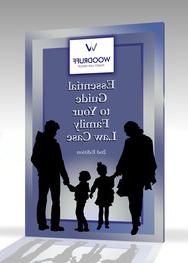Grandparent and Step Parent Rights to Custody and Visitation
This section will first discuss when grandparents have custodial rights, and secondarily, when other third parties should as step parents or live in companions have rights.
In North Carolina, grandparents have rights under two circumstances:
The first circumstance is if the two natural parents are both unfit (or otherwise cannot take care of a minor child, such as the parent is deceased, seriously disabled, or dead). The grandparents have the right to bring the unfit conduct (or the absence of the ability to take care of the child) to the court's attention and ask that the grandparent be given custody. The court has to find that the parents have both abrogated their constitutional rights under the Parental Rights Doctrine because of the unfit conduct. The Parental Rights Doctrine is a concept under the US Supreme Court citing parents generally have the paramount natural right to rear their children. The conduct does not have to be serious enough to terminate the parental rights of the parents.
A typical example of unfitness would be drug addicted parents.
The second area of rights for grandparents arises when the natural parents are in a custody dispute with the North Carolina Courts. Perhaps the grandparents are being denied time with their grandchildren.
Grandparents can file a motion for visitation if:
- There is an ongoing custody case between the natural parents
- The grandparent has a substantial relationship with the child
- You might illustrate your substantial relationship with your grandchildren by your beautiful pictures and photo albums
Now, we will move on to step parent or other third party rights.
The first question is generally going to be whether the step parent or other third party has standing to ask for custodial rights. Standing is a complex legal question and should be discussed thoroughly with your attorney regarding your particular case. The key question will be whether the third party and the child have an established parent child relationship, and this will be decided on a factual case by case basis, as illustrated in the case of Ellison v. Ramos, 130 NC App. 389, 502 W>E>2d 891 (1998).
In Ellison, the natural father and the live-in girlfriend companion “parented” the child. The biological mother was medically comatose, so the father was the only biological parent available for parenting. The father and girlfriend broke up, and the girlfriend asked for custody. The trial court dismissed the case because the girlfriend did not have standing. Whoa! The North Carolina Court of Appeals reversed stating that the trial court had to look at the case on a factual case by case basis. The girlfriend’s position was that she was the one handling all of the custodial duties for five years. She also alleged that she was the one handling the minor child’s specialized medical needs. The Court of Appeals indicated that if girlfriend could prove she had been the “parent” for five years, the court could reach the best interests test regarding whether the child could be placed with the girlfriend.

 Woodruff Family Law Group Home
Woodruff Family Law Group Home










